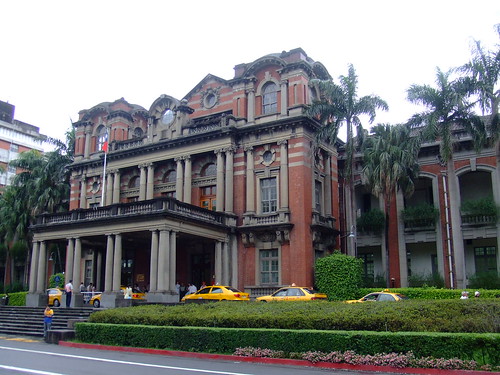Health Care In Taiwan
The health care system in Taiwan is great. As a teacher in Taiwan you automatically qualify for national medical coverage. However, this coverage does not start immediately. In order for it to begin you must have your Alien Residence Card (ARC), which can take upwards of two months to get established. It is advised that in the mean time you get emergency medical coverage before you go.
Rest assured that all doctors in Taiwan speak some level of English from their exposure to many medical texts in English. It also helps to try and find the largest hospital in your area, as it will undoubtedly have the largest staff to draw an English-speaking doctor from.
If you have a medical emergency dial 1-1-9 to reach emergency services in Taiwan. You can also call one of the medical centers listed below and they may have the ability to dispatch one of their own emergency vehicles to come and get you.
“TAIPEI (Taiwan News) — Taiwan ranked first in the world for the fifth consecutive year with a score of 85.9 in Numbeo’s mid-year “Global Health Care Index by Country,” per Liberty Times.”
Health care world rankings on Numbeo show that Taiwan is still the best place in the world for healthcare with South Korea as a close second!
Here are two articles written by Reach To Teach teachers that outline their experiences with healthcare in Taiwan:
Visiting a Doctor in Taiwan by Vadim Rubin
In this article, Vadim explains the differences between clinics and hospitals and what you can expect at each. How do I register for an appointment? where do I go? how do I pay? what kind of doctor do I see? do I go to a hospital or a neighborhood clinic? The first couple times at a clinic or hospital can be overwhelming, especially without the ability to speak Chinese or anyone to help; however, once accustomed to the processes it is, like most things in Taiwan, very convenient.
Hospitals in Taiwan by Michaela Gray
Hospitals in Taiwan are known for their cleanliness and excellent healthcare, but the experience itself can be very different to what you may be used to back home. Made all the more difficult with a language barrier to tackle.

The hospitals are modern, clean, and very accessible! There are a few differences, though, when visiting a hospital in Taiwan.
How to Do A Health Check at Renai Hospital by Carrie Kellenberger
This is the latest information about getting a health check at Renai Hospital in Taipei, Taiwan. A health check is required in order for your employer to apply for a work permit for you. The type of health check you get is determined by which field you will be working in.
Working abroad in Taiwan means that a health check will be part of your yearly routine until you get your permanent residence card, which is known as an APRC. Anyone who is planning to teach English in Taiwan must do a health check to teach legally.
If you live in Taipei, you will likely make a trip to Renai Hospital for your health check. Renai is not the only hospital in Taipei that does health checks, but it is the most efficient.
Health Care In Taiwan
Hospitals and Medical Centers in Taipei
Adventist Hospital
- Address: 424 Pa Te Rd., Sec. 2, Taipei
- Telephone: 2771-8151
- This clinic is very popular in the expatriate community and probably treats more expat patients than all other clinics combined.
Cathay General Hospital
- Address: Jen Ai Rd, Sec. 4., Taipei
- Telephone: 2708-2121
Central Clinic
- Address: 77 Chung Hsiao E. Rd., Sec. 4, Taipei
- Telephone: 2751-0221
Chang Gung Memorial Hospital
- Address: 199 Tun-Hwa North Road, Taipei
- Telephone: 2713-5211
Cheng Hsin Hospital
- Address: 45 Cheng Hsin Rd., Shih Pai, Taipei
- Telephone: 2826-4400
Chung Shan Hospital
- Address: 11 Lane 112, Jen Ai Rd., Sec. 4,Taipei
- Telephone: 2708-1177
Country Hospital
- Address: 61 Jen Ai Rd., Sec. 4, Taipei
- Telephone: 2771-3161
Mackay Memorial Hospital
- Address: 92 Chung Shan N. Rd., Sec.2, Taipei
- Telephone: 2543-3535
National Taiwan University Hospital
- Address: 7 Chung Shan S. Rd., Taipei
- Telephone: 2312-3456
- Reputed to be one of the best medical facilities in Taiwan
Shin Kong Hospital
- Address: 95 Wen Chang Rd., Shihlin
- Telephone: 2833-2211
Sun Yat-Sen Cancer Center
- Address: 125 Lih-der Rd., Pei-Tou District, Taipei
- Telephone: 2897-0011
Taipei Municipal Yang-Ming Hospital
- Address: 105 Yu Sheng Street, Shihlin
- Telephone: 2834-9721
Tri-Service General Hospital
- Address: 325 Cheng Kung Road, Section 2, Nei Hu District, Taipei
- Telephone: 8792-3311
Veterans General Hospital
- Address: 201 Shih Pai Rd. Sec.2, Shih Pai, Taipei
- Telephone: 2871-2121
- One of the largest government hospitals in Taiwan
Health Care In Taiwan
Hospitals and Medical Centers in Other Areas of Taiwan
Changhua – Changhua Christian Hospital
- Address: 135 Nanhsiao Street, Changhua
- Telephone: (04) 723-8595
Hualien – Tzu Chi Buddhist Hospital
- Address: 707 Chung Yang Road, Section 3, Hualien
- Telephone: (03) 857-8600
Kaohsiung – Chang Gung Memorial Hospital
- Address: 123 Ta Pei Rd., Kaohsiong
- Telephone: (07) 731-7123
Keelung – Chang Gung Memorial Hospital
- Address: 222 Mai-Chin Road, Keelung
- Telephone: (02) 2431-3131
Linkou – Chang Gung Memorial Hospital
- Address: 5 Fu-Hsing Street, Kuei Shan Hsiang, Taoyuan Hsien
- Telephone: (03) 328-1200
Taichung – China Medical College Hospital
- Address: No. 75 Yuh Der Road, Taichung
- Telephone: (04) 205-2121
Taichung – Chung Shan Medical College Hospital
- Address: 110, Chienkuo N. Rd. Sec.1, Taichung
- Telephone: (04) 473-9595
Taichung – Taichung Veterans General Hospital
- Address: 160 Chung-Kang Rd., Sec. 3, Taichung
- Telephone: (04) 359-2525
Tainan – Chi Mei Foundation Hospital
- Address: 901 Chung Hwa Rd., Tainan
- Telephone: (06) 281-2811
Traditional Chinese Medicine in Taiwan – Health Care in Taiwan
For over 3,000 years traditional Chinese medicine has healed sick and imbalanced bodies through massage, manipulation of blood flow and acupuncture. The theories of these practices were long ago outlined in The Yellow Emperor’s Classic of Internal Medicine written between the third and first century B.C.
Baguan – Cupping
Baguan, better known as cupping, is the art of placing large bell-shaped vacuum caps on one’s back (see picture). The idea is to pull blood and any toxins that reside in it to the surface of the body using the strong suction inside the cups. Bringing the blood to the surface draws the toxins out and allows the body to rid itself of disease. The downside is that the cups leave large circular bruises on the skin. These bruises will slowly heal and change back to a normal skin tone over a period of about a month. Read a teacher’s experience with cupping here.
Guasha – Scraping
Guasha will typically follow a baguan treatment. It is also known as scraping.
The technique involves pressing a cow-horn implement onto pressure points along the entire back. The tool is then dragged (in a scraping motion) along the back that causes bruising. This brings more of the body’s internal impurities to the surface to be cleansed. The next step is an acupuncture treatment to help the body relax and heal faster by balancing the flow of yin and yang. Read a teacher’s experience with scraping here.
Acupuncture
The technique does not always involve needles going into your skin. Acupuncture can also involve using a small steel prong connected to a source of low electrical current. This is pressed onto different pressure points on the body until the flow of electricity stimulates these points. The initial sensation can be very painful, especially if one of the acu-points that is being pressed connects to a body organ or energy field that is unhealthy. The soreness is temporary though and the initial sting is replaced by a sense of relaxation.
In traditional acupuncture needles are pushed into acu-points that are connected with energy fields or internal organs. It is the stimulation of these acu-points that activates that organ or energy field. Through a combination of techniques this stimulation unblocks organs or energy flows in order to induce proper function.
Pharmacies In Taiwan
Small pharmacies can be found in just about every little neighborhood throughout the country. Here you can find all your common cold remedies as well as other hygienic products. Pricing is very cheap particularly compared to what you may be use to paying back home. If you need to refill a prescription it is best to return to the doctor from whom you received it.




